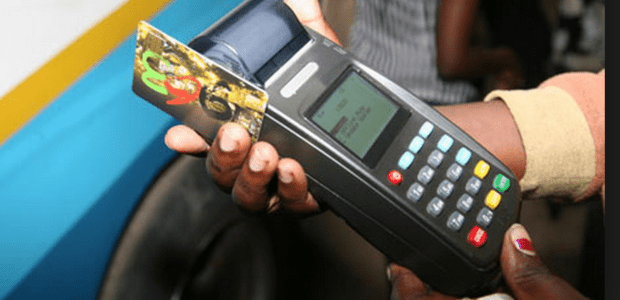advertisement
Five PSV saccos to phase out cash, go cashless by February 1
Five PSV Saccos with 250 vehicles plying Nairobi’s Jogoo road route have tied with technology company Fibre Space to use…

Five PSV Saccos with 250 vehicles plying Nairobi’s Jogoo road route have tied with technology company Fibre Space to use its cashlight fare system ‘MY1963’ to end cash payments for matatu fares, with ROG SACCO leading the way, saying it will refuse to accept cash fares from February 1st.
The move to enforce the cash light fare system is being driven by revenue losses that owners say amount to over 30 per cent of their daily earnings.
The owners claim the government’s relaxation on the implementation of the cash light system has pushed them to self implement, in a campaign that is now targeting over 100,000 passengers on one of the busiest roads in Nairobi, putting paid to claims that SACCOs are not ready to embrace fare payment technology.
advertisement
In a bid to return order to the matatu industry and harmonize the PSV operations with an estimated $2bn turnover, the government last year introduced a raft of measures including moving all matatus into SACCOs and switching to cashless payments to increase transparency and reduce cases of corruption on the roads.
Corruption has been cited as the biggest culprit in the flouting of traffic rules and, ultimately, deaths on Kenyan roads.
But the cashless switchover has proceeded at a snail’s pace, with government’s initial deadline of July 1st extended by six months to December 1, 2014.
advertisement
Even with the second deadline, adoption has been minimal and the government has gone slow on implementation.
But now matatu owners through big SACCOs along the Jogoo Road route, after a series of meetings that cited continued losses of income, have decided to accelerate the cash light system enforcement, in partnership with technology company Fiber Space, using its ‘MY1963’ card system.
“The matatu owners we have provided point of sale terminals and technical support to approached us to work together to fast track adoption of the cards by passengers, since the owners were still recording losses of revenue on their vehicles,” said Mwakio Ngale, GM, Fiber Space Limited.
advertisement
The five SACCOs, with some of the largest fleets along the Jogoo Road route, include Ummoiner with 100 matatus, Cibet with 40, Compliant with 40, ROG with 38, and Oma with 32.
Under the partnership, about 40 youth distributing the ‘MY1963’ cards have been deployed, since Monday this week, during rush hours at selected bus terminals in Nairobi, including the Ronald Ngala where the Ummoiner SACCO buses are stationed.
“While the matatu owners fully understand the need for the cashlight fare system, the majority of passengers have shied away from embracing them due to limited information. With this partnership our activators will be in bus terminals explaining the details to passengers,” said Mwakio.
The campaign is targeting Nairobi’s working class along Jogoo road, students, estate traders, and mama mbogas, who are first to use the matatus from the estates to city markets like Wakulima Market, where they buy the produce to later sell to dwellers of estates along Jogoo Road.
The card distributors, known as activators, start by giving the passengers the cards free of charge, then explain to them how the card works through the self care option, additionally providing leaflets.
Registration of the card is free with passengers needing only a national identification card, a valid phone number and date of birth information to create individual accounts.
Users are then able to load money through M-PESA at no additional cost, thanks to a partnership with Safaricom.
“This creates a smooth flow of the entire system. While we have offered the technical support to the matatu operators through training their members, making sure that the gadgets are available and back end systems are tested and working, it follows naturally that the next thing is to target the passengers with sensitization, which is what this entire week is about,” said Mwakio.
While the SACCOs use the exercise to test the waters on the adoption of the cards, some, like ROG, are taking the cashlight fare system seriously.
They have set up February 1, 2015 as the last day any of their matatus will receive any cash payment from any passenger, after which they will automatically go fully cashlight.
The one-year-old SACCO, whose matatus ply CBD through Jogoo Road via Landhes Road into Bahati Estate, Kimathi, Jerusalem, Uhuru, Buruburu phase 1, Outer Ring and Civil Servants Estate insists that it would rather lose passengers than remain stuck in the age old cash system.
“The emerging trend where Matatu owners are taking it upon themselves to accelerate adoption of the cards without waiting for government means that the switchover will be fast, smooth and definitely a new job creating platform,” said Mwakio.
Already the ‘MY1963’ card, which gives passengers loyalty points to get free fares and offers fare credit facilities, has created over 2,000 jobs in distributing the cards.